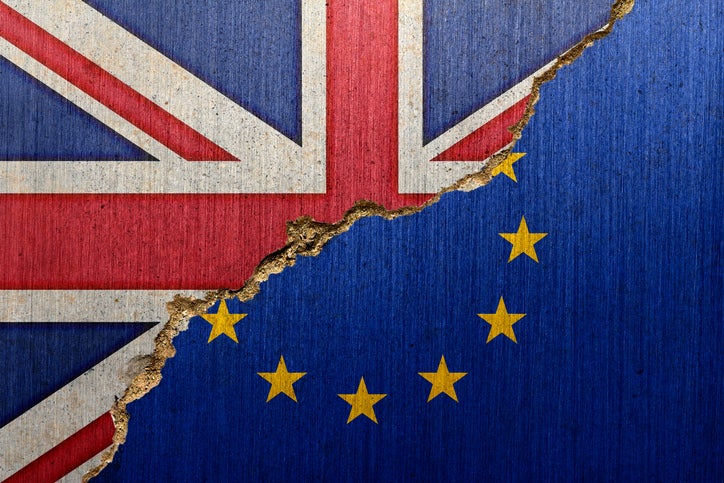It is hard to accept the possibility that the parliamentary and judicial Brexit wranglings of last year are about to be repeated. Knife-edge votes, walkouts, leaks, negotiations stalling, Supreme Court judgments, Tory rebels, Labour splits, threats and insults, talk of traitors and the Dunkirk spirit... could it really be deja vu all over again?
It already is, and with some of the same personalities. Although the arithmetic in the Commons was transformed by last year’s Tory purges and December’s general election, dissent within Tory ranks about reneging on the UK-EU withdrawal agreement is already growing and organising.
Some of the veterans of last year’s battle in the Commons, such as Mr Ken Clark, Ed Vaizey and Philip Hammond are merely transferring to another front – the House of Lords. There they will be able to regroup with old allies, such as Lord (Michael) Heseltine, and join up with new useful new recruits such as Lord (Michael) Howard and Lord (Norman) Lamont.
Support and encouragement from outside will be provided by the likes of Sir John Major and plain Mr Tony Blair and Mr Gordon Brown. Ms Theresa May looks keen to lead the rebellion in the Commons. Soon every former premier, former chancellor and former Conservative leader (except Iain Duncan Smith) will be united against the present government, an unprecedented alliance.
They may not in the end prevent the government from going ahead in its defiance of international law, which some hope is only a bluff in any case. They will, though, push Boris Johnson closer to the inevitable compromise he will have to make – the mother of all U-turns (so far).
If the form book is anything to go by, in due course, at the last possible moment, Mr Johnson will cave, throw whoever needs be under a Boris Bus, and hail whatever his humiliation turns out to be as a “fantastic deal” that confounds his critics. For “success”, however flawed and cosmetic, is for him existential in a way it is not for the Europeans. Emmanuel Macron and Angela Merkel may suffer some political damage from the sectors of their economies closely tied to the UK, but for Mr Johnson the slump in British exports would be devastating to his hopes for the next election – the impact on investment and jobs will reverberate nationally for years. He would be toast.
The good news in all of this is that the trade talks, despite the acrimony, are continuing and both sides would prefer a deal, though the posturing suits them tactically. Apart from pride and the continuing resentment of his party’s ultras, there is no reason why Mr Johnson could not find a compromise on fish and the level playing field that would at least postpone the issues. They are more practical than ideological. There are far more fish in Britain’s waters than the nation can eat, and the Europeans are willing buyers. All that seems to be at stake is the length of the contracts, so to speak.
The level playing field and the supposed sovereign right to state aid could also be fudged and made into a contingent future problem. The truth both sides know but dare not admit is that the European nations subsidise and prop up industries covertly and subtly, and much more than they like to pretend.
On the British side, the new-found taste for intervention and picking trillion-dollar tech giants and space empires mostly exists in the fevered mind of Dominic Cummings, a Mekon for our times. In reality, none are likely to seriously challenge European industries. If they or other types of cruder state aid or looser regulations were to mean British entities unfairly competing in Europe, then the EU could reserve the right to levy compensatory tariffs or impose other obstacles to trade to re-level the playing field, with some mechanism for resolving rows. With luck, both sides will find that “dumping” is relatively rare, and that the present pattern of trade will continue uninterrupted if it is allowed to do so.
The customs procedures along the GB-NI border would similarly become far easier to manage with a free trade deal in place. The controversial provisions in the UK Internal Market bill might never be needed. They too could be shelved or “held in reserve” for future use if things go wrong. They could be left for future, contingent use, with an appropriate parliamentary approval required if the moment to implement them and override the withdrawal agreement ever arose.
The UK-EU trade deal, in other words is perfectly practicable. It would be far inferior to the current UK deal, by which all the benefits of EU membership are enjoyed but without the obligation to join the euro and a discounted budget contribution. Any new trade deal wouldn’t cover all of the service sector, which makes up the great majority of the British economy. Still, a limited free trade deal would be nirvana compared to the no-deal alternative, which enjoys very little public support.
Whatever the people voted for in 2016 it was probably not no-deal Brexit, and they are in no mood to have further economic misery inflicted on them, on top of the effects of Covid-19. The fundamentals behind these fractious complex talks are very simple; the British economy and its government needs a deal more than the Europeans do, and in the end the British will give way. Only because of the fetishisation of sovereignty and the absurd posturing in recent years will it appear like a defeat. A trade deal, given the circumstances and the alternative, is as close to a win as Britain can expect. The rest is mere theatre.





Join our commenting forum
Join thought-provoking conversations, follow other Independent readers and see their replies
Comments